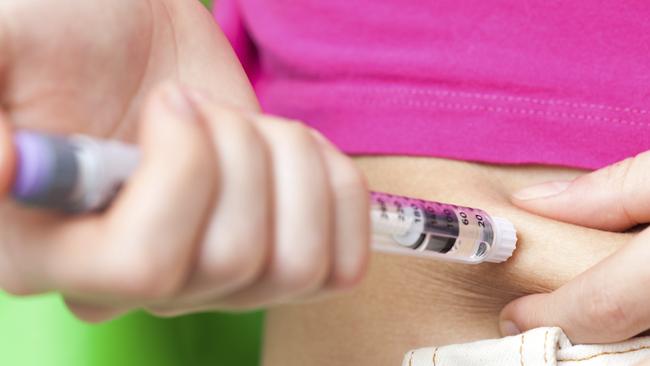Diabetes patients at increased risk of heart attack and stroke
MELBOURNE researchers are the first to uncover the mechanism that leads to excessive platelets being produced in the blood of diabetes patients, which puts them at increased risk of stroke and heart attack.

VIC News
Don't miss out on the headlines from VIC News. Followed categories will be added to My News.
MELBOURNE researchers are the first to uncover the mechanism that leads to excessive platelets being produced in the blood of diabetes patients, which puts them at increased risk of stroke and heart attack.
The breakthrough finding has led them to identify two promising treatments, fuelling hope that a monthly injection could soon be offered to the 1.7 million Australians with type 1 or 2 diabetes to safeguard the health of their blood vessels.
Platelets, the blood cells in plasma, play a crucial role in stopping bleeding through clotting.
But too many of them can lead to blood clots that cause heart attack and stroke.
And while aspirin is a proven blood thinner, it is less effective in those with diabetes because the platelet become resistant to this.
Researchers, led by the Baker Heart and Diabetes Institute, showed in mice that high blood glucose causes an increased platelet production, and the resulting cardiovascular disease seen in 70 per cent of diabetics.
Lead researcher Associate Professor Andrew Murphy said they used a new type of glucose-lowering drug to successfully control platelets levels.
Further, they found the specific protein, called S100A8/A9, which caused this increased platelet supply in response to high blood glucose.
Associate Prof Murphy said as there was already a drug on the market that worked to inhibit this protein’s ability to curb platelet production in the auto-immune disorder systemic sclerosis, it could speed its approval for use in diabetes.
And there is emerging evidence that it’s not just those with chronically uncontrolled diabetes who are at risk. Even occasional short-term dramatic changes in blood glucose — just one uncontrolled day a week — can lead to significant vascular damage.
The team is now developing a monoclonal antibody; a drug that binds specifically to this S100A8/A9 protein and rallies the patient’s immune system to target these cells.
“We hope this can give people with diabetes reassurance that even though they have to be monitoring their blood glucose, if they accidentally have a meal with a higher sugar content than they thought, they wouldn’t need to be as nervous about that,” Associate Prof Murphy said.
“We want to have a safety net for those spikes to look after their blood vessels.”
The study was published in the Journal of Clinical Investigations.


